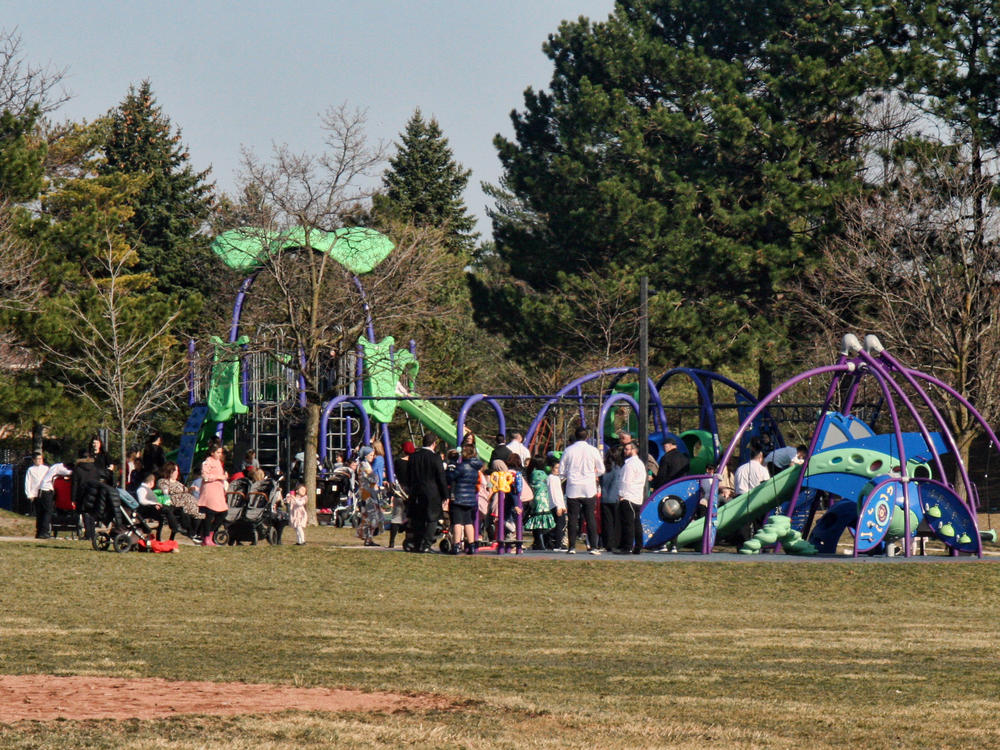Section Branding
Header Content
Toronto Suspends In-Person Classes As Cases Surge In Canada's Most-Populous Province
Primary Content
A resurgence of COVID-19 cases driven by virus variants throughout Canada has forced the country's largest city to suspend in-person learning.
All elementary and secondary school students in Toronto will return to remote learning Wednesday without the chance to return before April 18, city officials announced Tuesday.
"The spread of COVID-19 has never been greater in Toronto, with variants of concern increasing both the risk of transmission and the risk of serious illness or death," a press release announcing the measure said. "Stronger public health measures are required to reverse the surge of infection that the province currently faces."
City leaders indicated the order may be extended if cases do not drop.
Dr. Theresa Tam, the chief public health officer for Canada, said Tuesday the latest COVID-19 surge stems from contagious variants in many areas of the country.
"With an ongoing increase in severe and critical illnesses placing a heavy strain on the health system in many places, it is clear community-based restrictions will be needed a while longer," she said in a statement.
Since the start of the pandemic, Canada has recorded more than 1 million COVID-19 cases and more than 23,000 reported deaths. Over the past week, experts have seen an average of 6,100 new cases and 31 deaths reported daily, Tam said.
"With increasing rates of infection, we are seeing a greater number of younger adults with COVID-19 being treated in hospital," Tam said. "This is a reminder that COVID-19 can impact people of all ages and severe illness can occur at any age."
Hospitalizations are up 4% from the previous week, and the rate of intensive care unit admissions has risen 18%, she said. The B.1.1.7 variant, which causes more severe illness and is considered more deadly, continues to account for more than 90% of COVID-19 variant cases, she said.
Tam urged Canadians to limit their travel as much as possible as health officials try to curtail the spread of the third wave.
Copyright 2021 NPR. To see more, visit https://www.npr.org.

